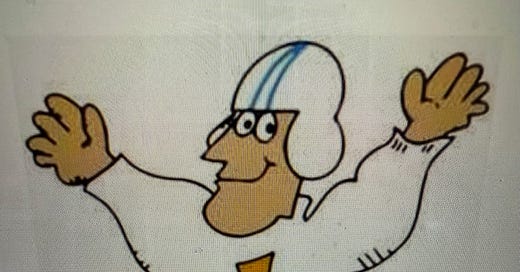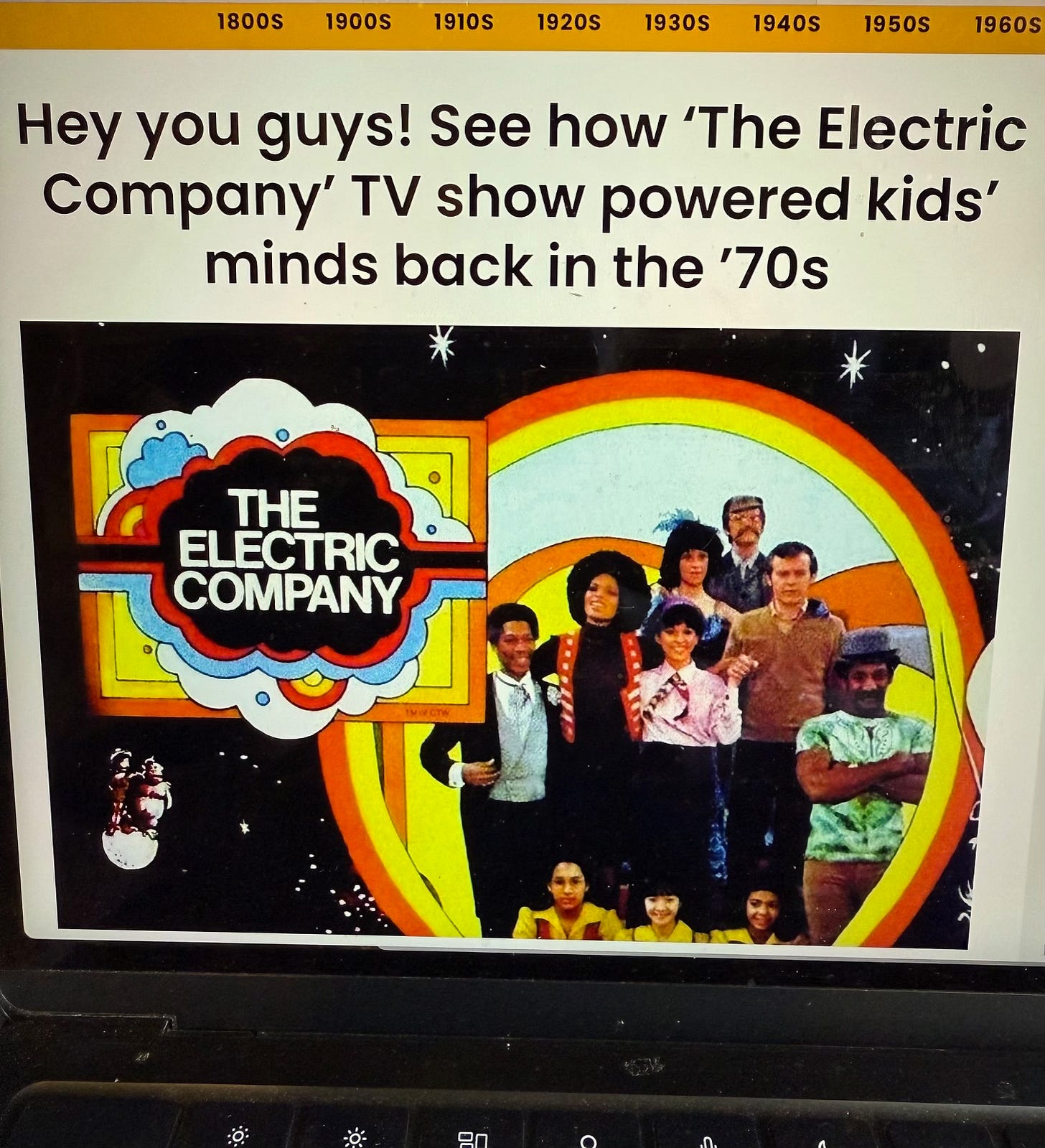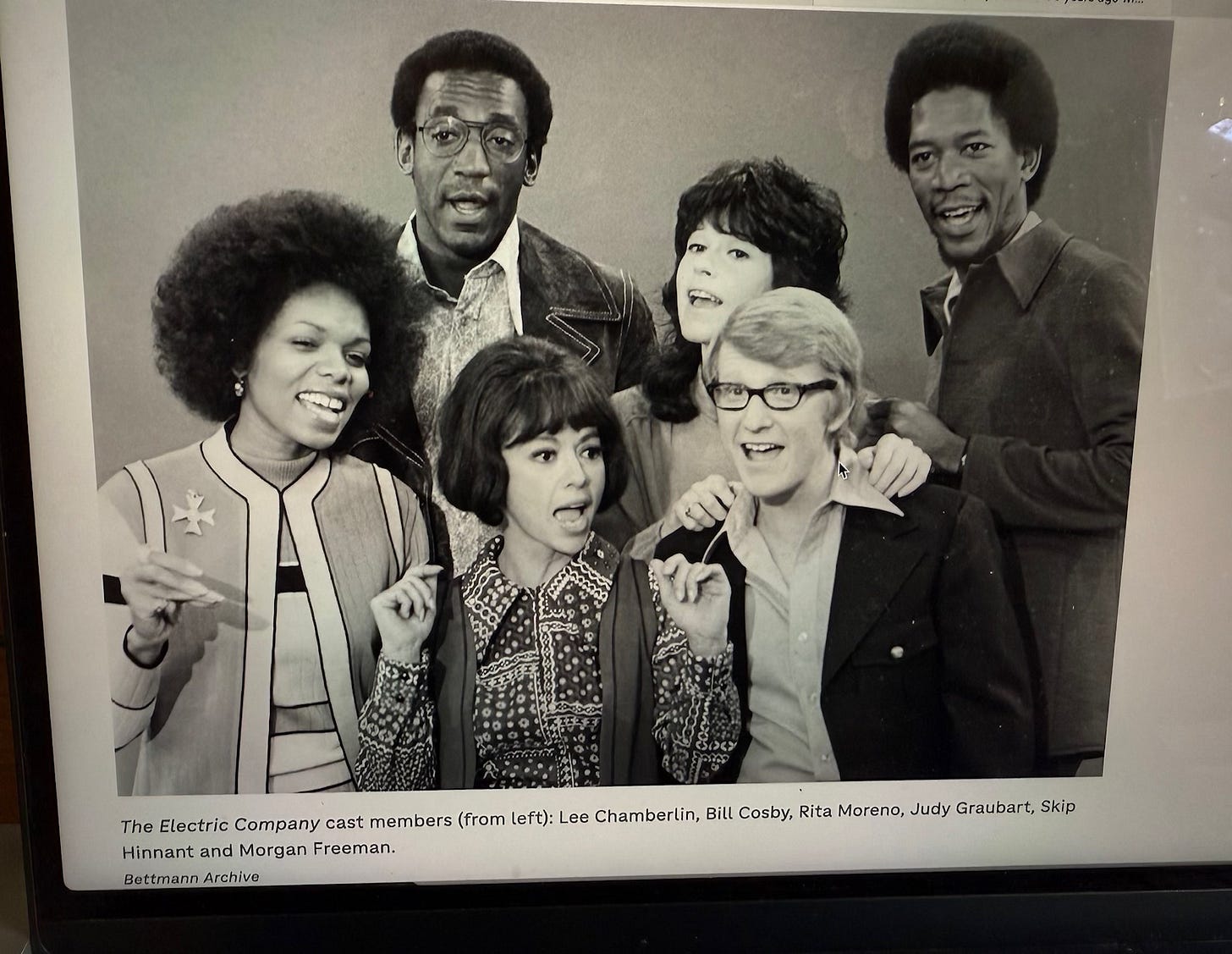Faster than a rolling "O," stronger than silent "E," able to leap capital "T" in a single bound! It’s a bird, it’s a plan, it’s Letterman! Words fell like bricks from sky-high syllables, crashing into couches, spelling out possibilities, opening doors, creating frameworks through phonics and code, building bridges out of chalk and breath, where every sound was a stepping stone to something more than knowing, a pathway for small souls. In the glow of public static, ideas flew in capes, jokes carried weights, and in between, from the crackle of basement air came a truth even children could hold: the right word makes the world wider. No flag waved, no speech declared, but the power flickered in each vowel – in sounds shared freely by rising stars, in laughter that spelled liberation, in the casual miracle of being heard. From that ghost-lit screen, a future spoke in sketches and syllables, teaching that freedom doesn’t shout, it spells itself out, slowly, when everyone has the chance to read and to speak. And we, wide-eyed at the glowing altar, becoming the superheroes who could someday save civilization one word, one deed at a time, grew up knowing the world was no longer black or white, but technicolor.
Author’s note:
On May 1, 2025, an executive order titled "Ending Taxpayer Subsidization of Biased Media," was signed, directing the Corporation for Public Broadcasting (CPB) and all federal agencies to cease funding for NPR and PBS, alleging political bias in their reporting. The order also instructs agencies to eliminate indirect funding mechanisms, such as grants and contracts, to these organizations. This move threatens approximately $500 million in annual federal support that sustains around 1,500 public media stations nationwide, particularly impacting rural and underserved communities that rely heavily on public broadcasting for educational content and emergency information. Legal experts and public media leaders argue that the executive order may exceed presidential authority, as CPB funding is determined by Congress, setting the stage for potential legal challenges.
Here is a New York Times article on this EA: Trump Signs Executive Order Seeking to End Federal Funding for NPR and PBS.
Background on The Electric Company:
The Electric Company premiered on PBS in 1971 as an educational television series created by the Children’s Television Workshop (now Sesame Workshop), designed to help elementary-aged children develop reading and grammar skills through an energetic blend of sketch comedy, animation, music, and celebrity performances. It followed the success of Sesame Street but targeted slightly older viewers, using a faster pace and edgier humor to capture attention. With recurring characters like Easy Reader (played by Morgan Freeman), Letterman, and Fargo North, Decoder, the show introduced literacy concepts through storytelling and clever wordplay. Running until 1977 in its original format and later revived in the 2000s, The Electric Company became a cultural touchstone, blending entertainment with pedagogy and underscoring PBS’s mission to make high-quality, accessible education available to all. We watched The Electric Company, Sesame Street and others… and Letterman (voiced by Gene Wilder) was a favorite.
What were Public Television shows that shaped you?
I’m proud to be a member of the Iowa Writers’ Collaborative. Please check out our work here. Please consider being a paid subscriber to my colleagues’ sites. Thank you for your support.







I love this!! Such energetic playful language that flows off the tongue with delicious rhymes and rhythms. It’s spoken word at its best!
Wonderful, and tragic. Public television was then WOI I believe, and Herb Hake had an Iowa History show that I loved.